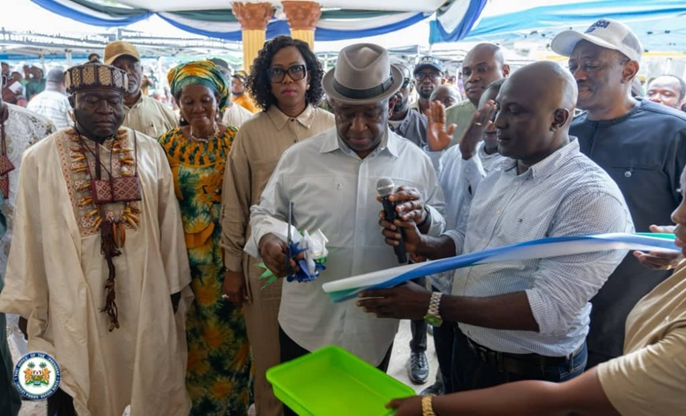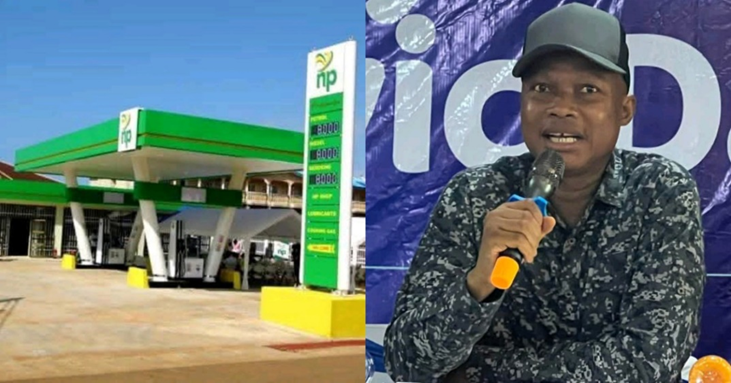By Mackie M. Jalloh
For years, farmers across Sierra Leone have struggled with declining harvests, unpredictable seed quality, and limited access to verified planting materials. But a new chapter appears to be opening in the country’s agricultural story. President Dr. Julius Maada Bio has inaugurated Sierra Leone’s first National Seed Testing Laboratory — a state-of-the-art facility built at Mile 91 through the Sierra Leone Agribusiness and Rice Support Project (SLARiS) with funding from the African Development Bank (AfDB).
The launch marks what many agricultural experts describe as a major step toward ensuring food self-sufficiency under the government’s “Feed Salone” agenda — an ambitious vision to reduce dependency on imported food and promote sustainable local production.
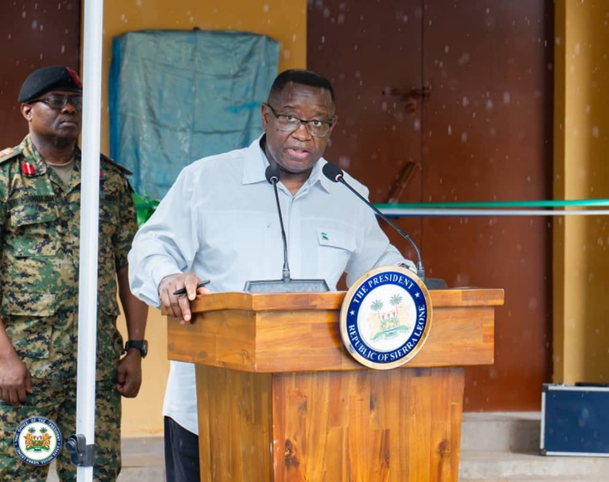
Addressing hundreds of farmers, researchers, and development partners gathered for the commissioning ceremony, President Bio said the facility symbolized a long-awaited breakthrough for rural communities and the national economy.
“For too long, our farmers have faced uncertainty because they couldn’t verify the strength and quality of their seeds,” the President said. “A farmer’s success begins with a viable seed — without that, all other efforts fail. This laboratory will ensure that only high-quality, tested, and certified seeds reach our farmers.”
The President described the new laboratory as a “national treasure” that must be preserved and maintained for future generations. He emphasized that its establishment was not just a scientific investment but a moral commitment to transform agriculture into a reliable livelihood for farmers across Sierra Leone.
Built under the supervision of SLARiS, the National Seed Testing Laboratory represents years of planning and collaboration between national and international partners. The project was spearheaded by the Sierra Leone Seed Certification Agency (SLeSCA) — the government institution responsible for seed regulation, testing, and certification.
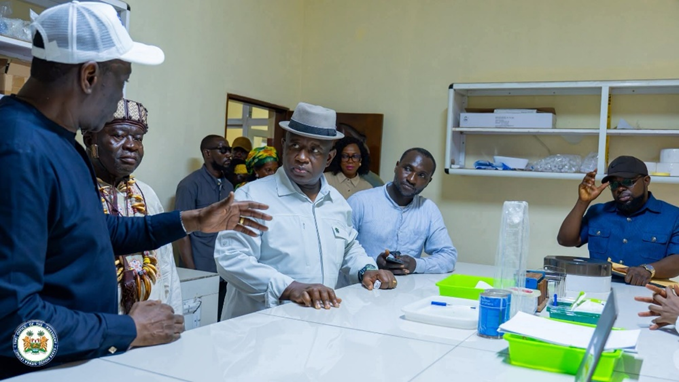
Dr. Robert Chakanda, Executive Director of SLeSCA, hailed the commissioning as “a turning point” for agricultural development. He revealed that the facility is equipped with modern seed testing equipment capable of assessing purity, germination rate, and moisture content, in line with international standards.
“This laboratory gives Sierra Leone the capacity to independently verify the quality of seeds entering our markets,” Dr. Chakanda said. “We have also developed several improved local varieties and are partnering with Njala University to train young scientists and technicians to sustain this progress.”
According to Dr. Chakanda, the partnership with Njala University will facilitate ongoing research into seed genetics and adaptation, ensuring that local varieties are resilient to the country’s changing climate and soil conditions.
The Minister of Agriculture and Food Security, Dr. Musa Kpaka, described the laboratory as a “cornerstone of national food security,” noting that quality seeds form the foundation of agricultural productivity. He stressed that the facility will allow the government to strengthen seed certification systems, build trust among farmers, and align Sierra Leone’s agricultural standards with regional and global benchmarks.
“With this laboratory, we can finally put an end to the era of guesswork in seed production,” Dr. Kpaka remarked. “Farmers can now plant with confidence, knowing that the seeds they use have been scientifically verified. This is how we begin to truly ‘Feed Salone’ — by ensuring that every harvest begins with quality.”
The Minister also underscored the importance of continuous capacity building. “Our goal is not only to test seeds but to train the people who will run these systems sustainably. We must invest in our scientists, technicians, and extension workers so that the facility becomes a living institution of innovation.”
The commissioning ceremony at Mile 91 was more than a formal event — it was a signal of renewed confidence in the nation’s agricultural potential. Development partners, local leaders, and farmers expressed optimism that the laboratory would bridge the gap between research and practice, reduce post-harvest losses, and strengthen the country’s ability to produce sufficient food for its growing population.
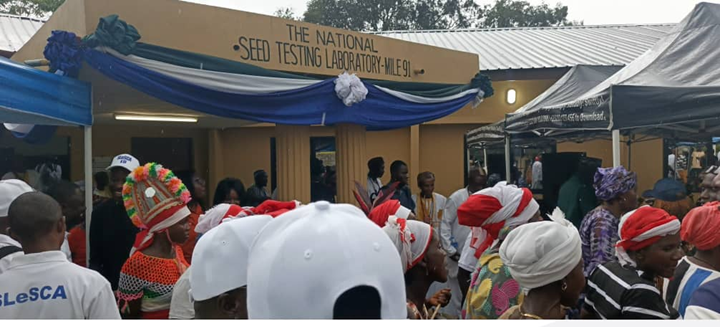
As Sierra Leone pushes forward with the “Feed Salone” initiative, the National Seed Testing Laboratory is expected to play a critical role in improving crop yields, enhancing farmers’ incomes, and boosting the nation’s food security index.
For President Bio, the moment underscored his government’s broader vision: that sustainable development begins in the soil — with farmers equipped, supported, and empowered to feed their nation.
“This laboratory is more than a building,” he concluded. “It’s a promise — a promise to every farmer that the seeds of Sierra Leone’s future will be tested, trusted, and homegrown.”

